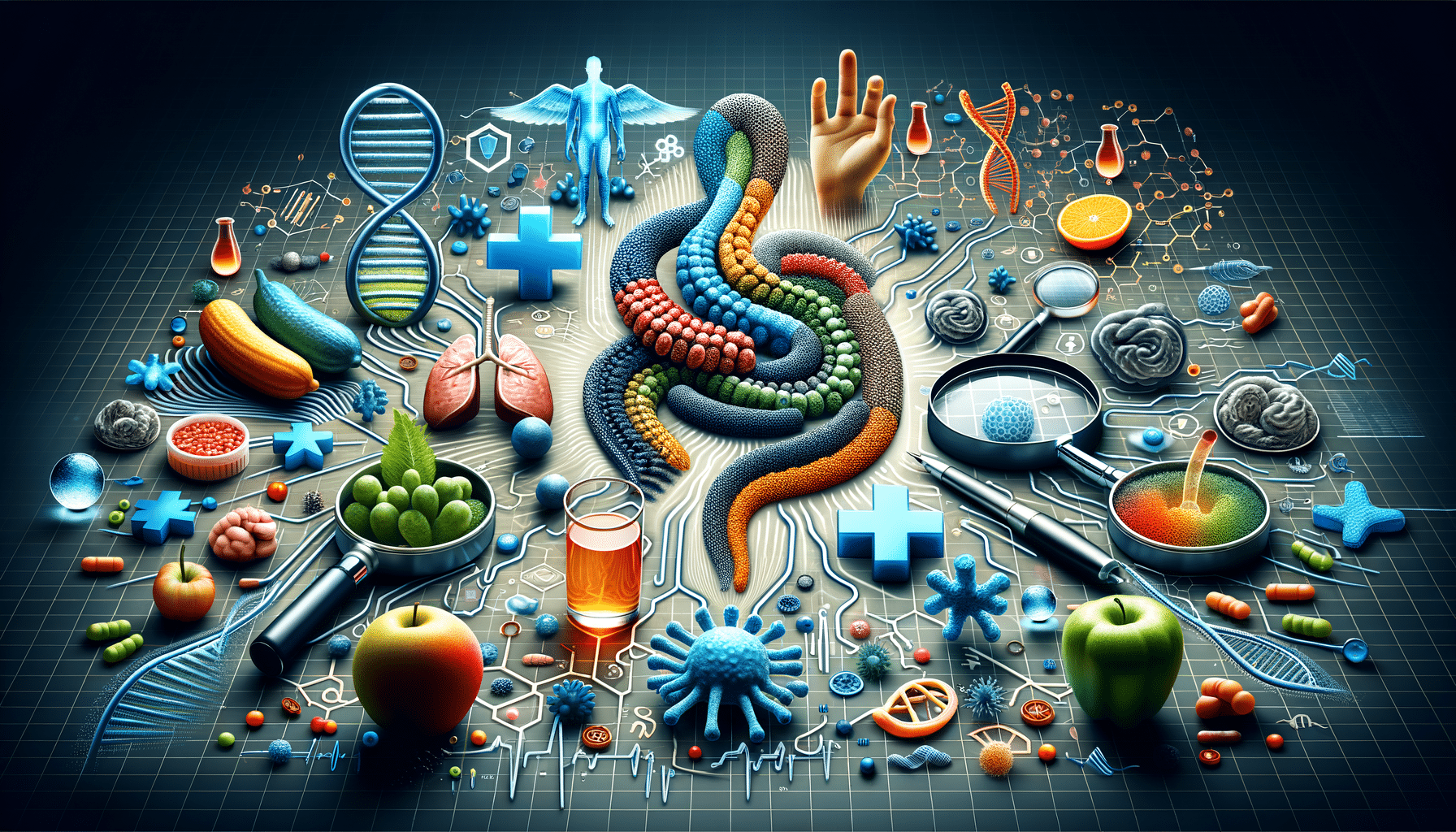
Uncovering the Impact of Gut Microbiome on Overall Wellness: Key Research Connections Revealed
The Microbiome Connection: Understanding the Basics
The human gut microbiome is a complex ecosystem of trillions of microorganisms, including bacteria, viruses, fungi, and other microbes, that reside in our digestive tract. This intricate community plays a crucial role in our overall health and well-being. Recent research has highlighted the significance of the gut microbiome in various bodily functions, from digestion and metabolism to immune system regulation and even mental health. Understanding the microbiome connections is vital as it opens new avenues for personalized medicine and dietary interventions.
One key aspect of the microbiome’s influence is its role in digestion and nutrient absorption. The gut microbiome helps break down complex carbohydrates, fibers, and proteins that our bodies cannot digest on their own. This process not only aids in nutrient absorption but also produces essential short-chain fatty acids that serve as an energy source for the body. Additionally, the gut microbiome is involved in synthesizing vitamins such as B and K, further emphasizing its importance in maintaining nutritional balance.
The microbiome also plays a pivotal role in immune system function. It acts as a barrier against harmful pathogens by competing for resources and space, thus preventing the colonization of harmful bacteria. Moreover, the gut microbiome communicates with immune cells, helping to modulate immune responses and maintain immune homeostasis. This interaction is crucial in preventing autoimmune diseases and allergies, showcasing the microbiome’s protective role in health.
Exploring Gut Health Research: Recent Findings and Implications
Gut health research has gained significant attention in the scientific community due to its potential implications for various health conditions. One of the most intriguing areas of study is the gut-brain axis, which explores the bidirectional communication between the gut and the brain. Researchers have discovered that the gut microbiome can influence brain function and behavior, shedding light on its potential role in mental health disorders such as depression and anxiety.
Recent studies have also linked gut health to metabolic disorders, including obesity and type 2 diabetes. The composition of the gut microbiome can affect energy balance and fat storage, influencing an individual’s susceptibility to weight gain. By understanding these microbiome connections, researchers are exploring the potential of microbiome-targeted therapies to manage metabolic conditions effectively.
Furthermore, gut health research has uncovered the impact of diet on the microbiome. Dietary choices can significantly alter the composition and diversity of the gut microbiome, influencing health outcomes. Diets rich in fiber, fruits, and vegetables have been shown to promote a diverse and healthy microbiome, while diets high in processed foods and sugars can lead to dysbiosis, an imbalance in the microbial community. These findings underscore the importance of dietary interventions in maintaining gut health and preventing chronic diseases.
Advancements in Gut Microbiome Research: A Path Forward
The field of gut microbiome research is rapidly evolving, with advancements in technology and methodologies driving new discoveries. High-throughput sequencing techniques have revolutionized our understanding of the microbiome, allowing researchers to identify specific microbial species and their functions. This has paved the way for personalized microbiome therapies, where interventions are tailored to an individual’s unique microbial profile.
One promising area of research is the development of probiotics and prebiotics. Probiotics are live microorganisms that confer health benefits when consumed, while prebiotics are non-digestible fibers that promote the growth of beneficial microbes. Studies have shown that specific strains of probiotics can improve gut health, enhance immune function, and even alleviate symptoms of gastrointestinal disorders. As research progresses, the potential of probiotics and prebiotics in personalized medicine continues to expand.
Another exciting avenue is the exploration of fecal microbiota transplantation (FMT), a procedure that involves transferring fecal matter from a healthy donor to a patient with a disrupted microbiome. FMT has shown promise in treating conditions such as Clostridium difficile infection and inflammatory bowel disease, highlighting the therapeutic potential of restoring a healthy microbial balance.
As we delve deeper into the intricacies of the gut microbiome, it becomes increasingly clear that this field holds immense potential for transforming healthcare. By harnessing the power of the microbiome, we can unlock new strategies for disease prevention, diagnosis, and treatment, ultimately improving the quality of life for individuals worldwide.


